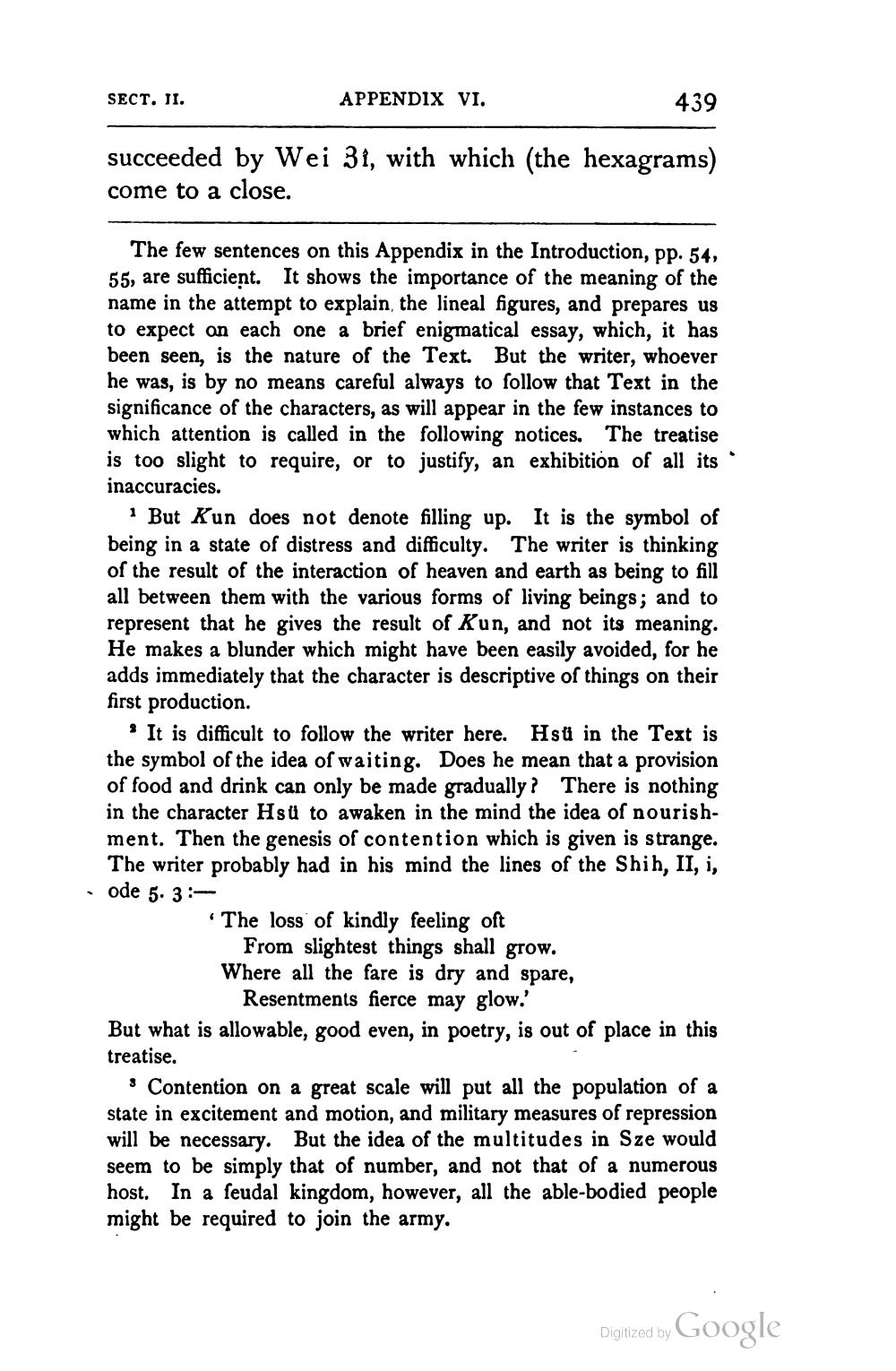________________
SECT. II.
APPENDIX VI.
439
succeeded by Wei Zi, with which (the hexagrams) come to a close.
The few sentences on this Appendix in the Introduction, pp. 54, 55, are sufficient. It shows the importance of the meaning of the name in the attempt to explain the lineal figures, and prepares us to expect an each one a brief enigmatical essay, which, it has been seen, is the nature of the Text. But the writer, whoever he was, is by no means careful always to follow that Text in the significance of the characters, as will appear in the few instances to which attention is called in the following notices. The treatise is too slight to require, or to justify, an exhibition of all its inaccuracies.
1 But Kun does not denote filling up. It is the symbol of being in a state of distress and difficulty. The writer is thinking of the result of the interaction of heaven and earth as being to fill all between them with the various forms of living beings; and to represent that he gives the result of Kun, and not its meaning He makes a blunder which might have been easily avoided, for he adds immediately that the character is descriptive of things on their first production.
! It is difficult to follow the writer here. Hsu in the Text is the symbol of the idea of waiting. Does he mean that a provision of food and drink can only be made gradually? There is nothing in the character Hsü to awaken in the mind the idea of nourishment. Then the genesis of contention which is given is strange. The writer probably had in his mind the lines of the Shih, II, i, ode 5. 3:
The loss of kindly feeling oft
From slightest things shall grow. Where all the fare is dry and spare,
Resentments fierce may glow.' But what is allowable, good even, in poetry, is out of place in this treatise.
o Contention on a great scale will put all the population of a state in excitement and motion, and military measures of repression will be necessary. But the idea of the multitudes in Sze would seem to be simply that of number, and not that of a numerous host. In a feudal kingdom, however, all the able-bodied people might be required to join the army.
Digitized by Google




